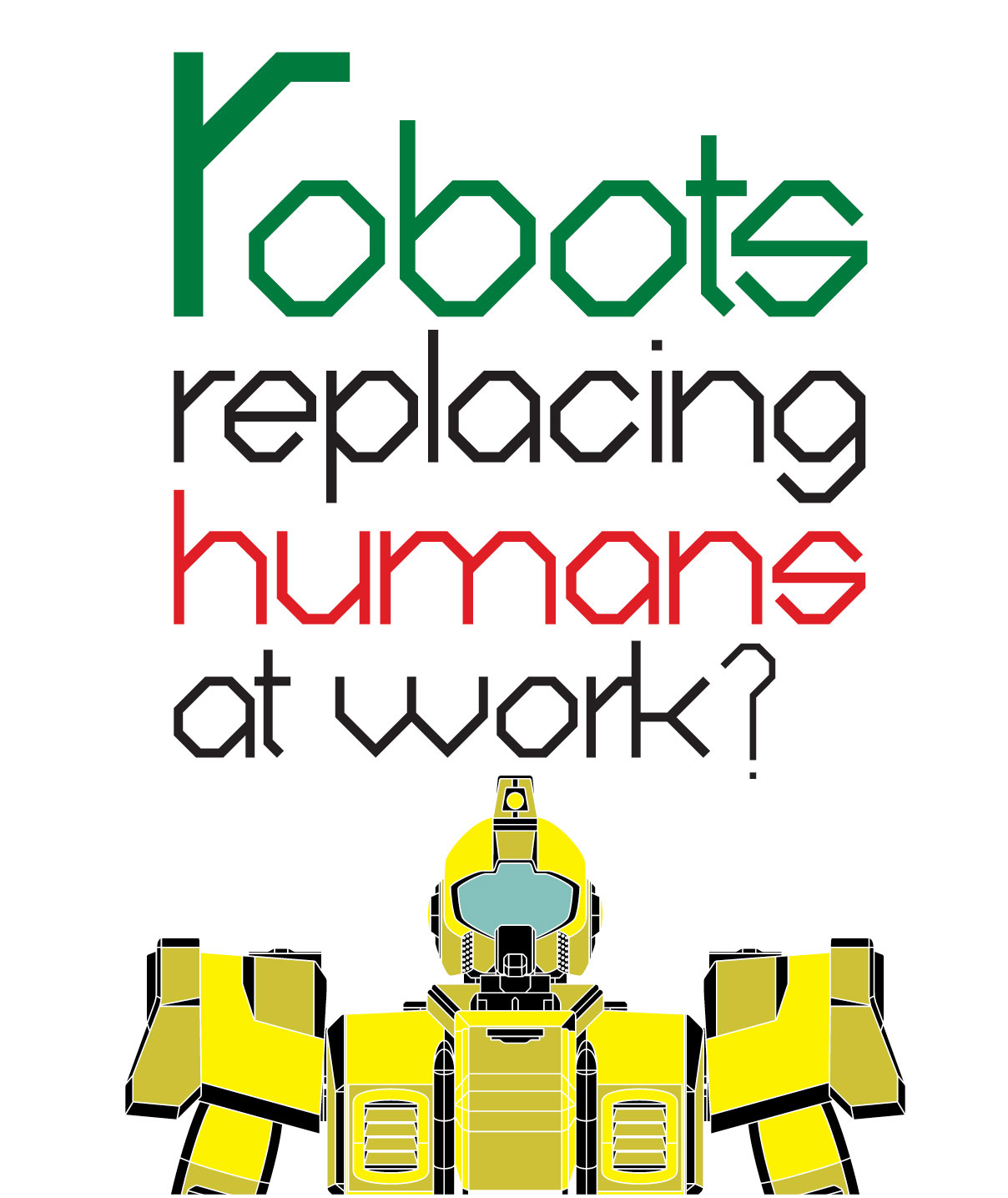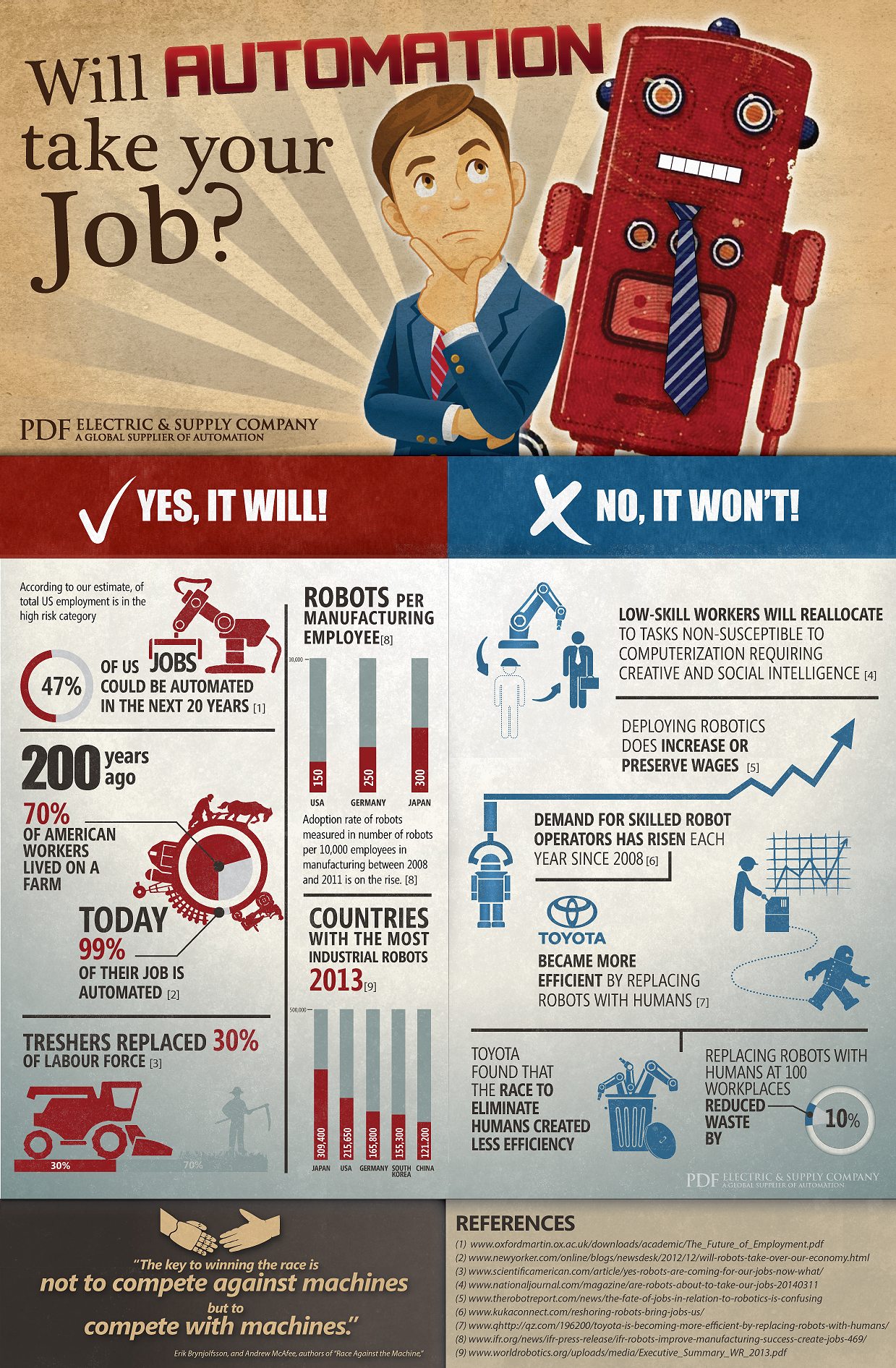 Imagine you’re a young worker, pondering your job prospects in the economy of the future. Your grades weren’t exactly stellar and you realise college isn’t for you. What kind of career should you look for?
Imagine you’re a young worker, pondering your job prospects in the economy of the future. Your grades weren’t exactly stellar and you realise college isn’t for you. What kind of career should you look for?
Your options are narrowing. Many traditional working-class jobs — from truck driving to administrative work to retail to tending bar — are being replaced by automated technology. The trend seems likely to accelerate. How do governments ensure that the children of tomorrow can do something useful? And how do governments help today’s working class transition to the economy of the future?
The most immediate challenge will be restructuring vocational schools to prepare students to do jobs that robots can’t and to take advantage of technology in new ways. Three skills in particular will still be useful in the new economy, as Frank Levy and Richard Murnane argued in a recent report for the research group Third Way: Solving unstructured problems, working with new information and doing manual tasks that can’t easily be automated.
So some skilled trades — plumbing, carpentry, electric work — will probably remain beyond the capabilities of robots for a long time. Likewise work in unstructured environments such as gardening or housekeeping. But many other blue-collar jobs are likely to be disrupted in the next few decades and in unexpected ways. How can vocational schools prepare their students for this kind of economy?
Probably the most important step they can take is to help children understand how to work alongside robots and other automated systems. Today’s car mechanics understand how to fix dents and transmission problems; in the future, they’ll need to know as much about self-driving technology.
Firefighters today put out flames much as their grandparents did. In a few years, they may be working alongside the Firefighting Robotic Scout, which can drive into burning buildings, detect dangerous gases, find vulnerable people and beam out a sophisticated three-dimensional map. Similar robot helpers are in the works for factory labourers, police officers and healthcare aides.
In short, the blue-collar jobs of the future will become more technologically sophisticated and workers will need to know how to adapt quickly as their job descriptions change. Vocational education can prepare students by fostering skills such as problem-solving and communication and by shifting away from the narrow occupational training it currently focuses on — because such training will quickly grow obsolete.
Eventually, as automation advances, even college graduates will find their careers disrupted: Doctors, lawyers and securities traders have all seen some of their work replaced by machines in recent years. (Journalists aren’t immune, either.) Yet as it so often happens when creative destruction churns through economies, the lowest-skilled workers stand to be hit first, and hardest.
The best place to start preparing them for this change, as for most things in life, is in the classroom.
How ready are you for the world with robots?



















